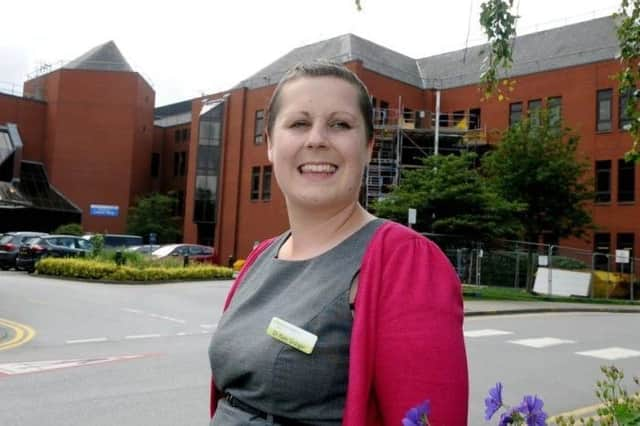Doctor behind campaign to humanise patient care dies aged 34


Now, Edinburgh University graduate Dr Kate Granger – herself a doctor, who launched the #hellomynameis campaign to help patient care become more personal – has died aged 34.
Dr Granger created the campaign to ensure doctors and healthcare workers introduced themselves to patients to make the care system feel more personal to individuals undergoing treatment.
Advertisement
Hide AdAdvertisement
Hide AdTributes have poured in for the doctor, who passed away at St Gemma’s Hospice in Leeds on Saturday, after being diagnosed with a rare form of cancer in 2011.
Just last week, she met her £250,000 fundraising target for the Yorkshire Cancer Society. Meanwhile, medical boards UK-wide committed to adopting the #hellomynameis scheme, including £400,000 of funding allocated by the Scottish Government to health boards north of the Border.
Her husband of 11 years, Chris Pointon, announced her death on Twitter yesterday morning. He wrote: “Peacefully & surrounded by loved ones @grangerkate passed away yesterday. RIP my soul mate & TY. Love u 4ever...”
Edinburgh GP Amy Small wrote: “I never met her but @GrangerKate was the most remarkable women. I changed the way I practice because of her.”
Advertisement
Hide AdAdvertisement
Hide AdDr Kate Lovett, dean of the Royal College of Psychiatrists, wrote: “She lit up the NHS and her influence will live on.”
Dr Eric Levi, a surgeon from Australia, also paid tribute to Dr Granger, saying her work had a “ripple effect around the world”.
Dr Granger has been credited with changing practice in many hospitals and clinics across the UK and was recently given a Special Achievement Award by the British Medical Journal.
She was also author of a book called The Other Side – and sequel The Bright Side – based on her experience as a patient.
Advertisement
Hide AdAdvertisement
Hide AdDr Granger, who worked in elderly medicine in Wakefield, Yorkshire, claimed that the lack of introductions on the part of medical workers she dealt with throughout her diagnosis and treatment made her feel “like just a diseased body and not a real person”.
She wrote: “During a hospital stay in August 2013 with post-operative sepsis, I made the stark observation that many staff looking after me did not introduce themselves before delivering my care. It felt incredibly wrong that such a basic step in communication was missing.”